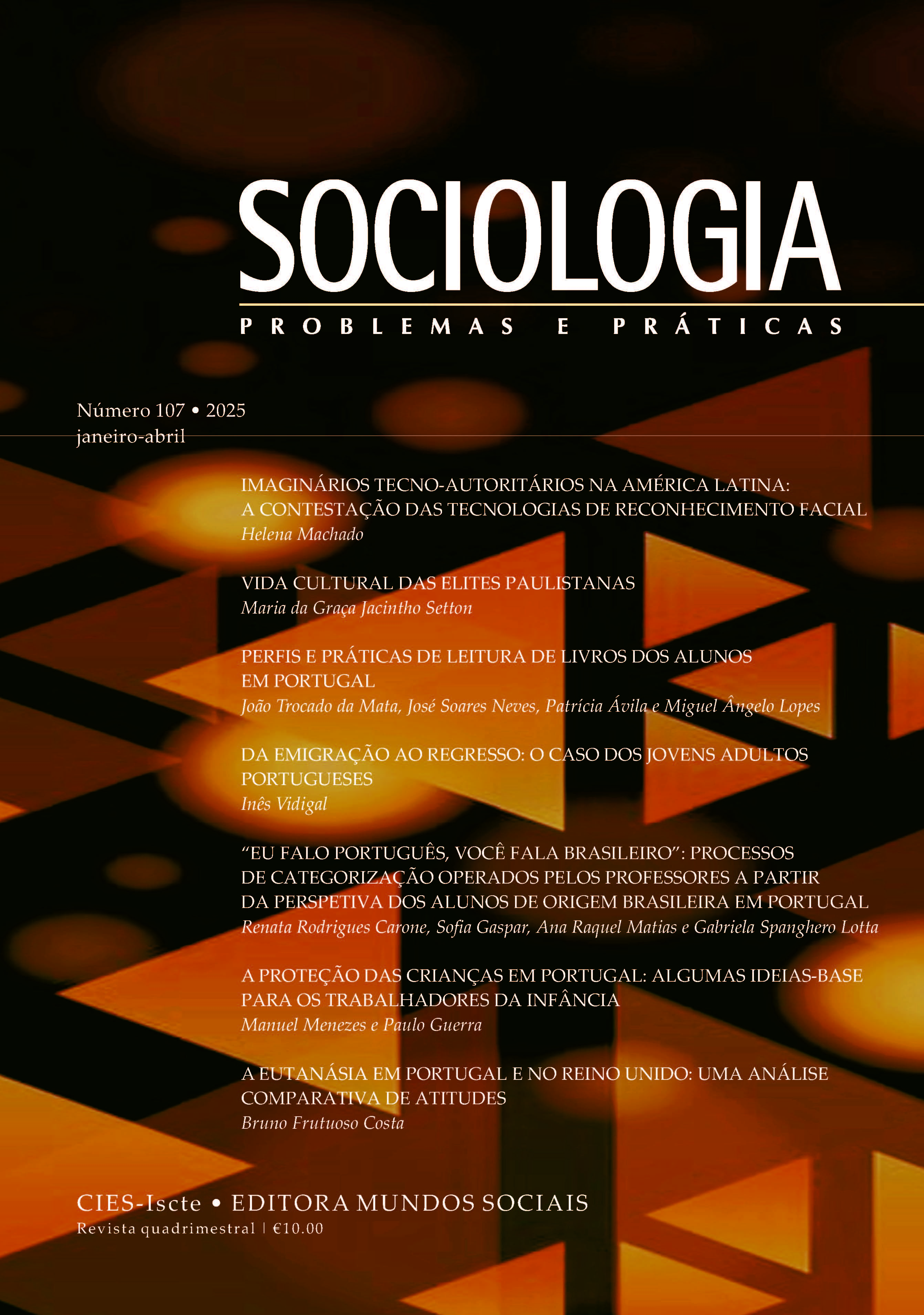Techno-authoritarian imaginaries in Latin America: the contestation of facial recognition technologies
DOI:
https://doi.org/10.7458/SPP202510736882Keywords:
facial recognition technologies, civil society organisations, Latin AmericaAbstract
In the context of the global expansion of facial recognition technologies, civil society organisations have taken action to challenge their use, citing risks of mass surveillance, threats to privacy and civil liberties, and inequalities and discrimination. This article expands knowledge about the contestation of facial recognition technologies beyond the cases of the US and Europe, analysing the contestation of civil society organisations in Latin America. It concludes that “techno-authoritarian imaginaries” are projected, revealing tensions and structural conflicts strongly marked by the political and social context, involving science and technological development, governments, companies, citizens and activism.
Downloads
Published
Issue
Section
License
Copyright (c) 2025 Helena Machado

This work is licensed under a Creative Commons Attribution 4.0 International License.
Authors who publish in this Journal must agree the following terms and conditions:
- Authors retain copyright and grant the Journal the right to first publication, while simultaneously agreeing to a Creative Commons Attribution License, which allows others to share their work on condition that they cite the original author(s) and recognise that the latter’s work was first published in this Journal.
- Authors are authorised to enter into additional contracts separately, for non-exclusive distribution of the version of the work that is published in this Journal (e.g. publication in an institutional repository or as a book chapter), subject to recognition of initial publication in this Journal.



